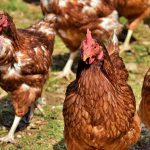
Molting is energy intensive. Chickens therefore don’t normally molt during times when they need dietary energy elsewhere. For example, in the spring roosters use energy for fertility and hens use energy for laying eggs and hatching chicks. In cold weather chickens need energy to keep warm. During a molt, nutrients that otherwise go toward such […]
Continue Reading

For some types of poultry, determining a bird’s gender is easy. Other times not so. Here’s a quick rundown on how to sex poultry, including chickens, turkeys, guinea fowl, ducks, and geese. Chickens Some baby chicks may be sexed at the time of hatch by differences in down color. Otherwise, the easiest way to sex […]
Continue Reading
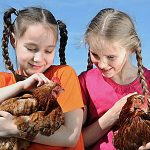
Defining the differences between a purebred and a hybrid chicken can be complicated. Some breeds are not purebred. But even a pure breed may have started out as a hybrid. What is a purebred chicken? Purebreds, also called straightbreds, will breed true. That means all the breeder roosters and hens have uniform bloodlines, and their […]
Continue Reading
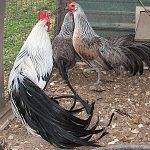
A chicken’s gender may be determined by a number of different methods. Which method works best depends on the bird’s age, breed and variety, and skill of the observer. Here are the four common ways to sex a chicken. Vent Sexing Vent sexing can be done soon after a chick hatches. Also called cloacal sexing, […]
Continue Reading
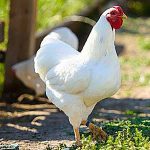
To some chicken keepers, a dual purpose breed is one that’s suitable for both meat and eggs. To other chicken keepers, dual purpose refers to a breed that’s suitable for neither meat nor eggs. So exactly what is a dual purpose chicken? Meat or Eggs Before the poultry industry developed into the behemoth it is […]
Continue Reading
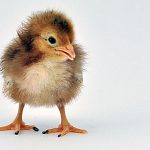
Cannibalism is the disagreeable habit chickens have of pecking one another until they draw blood. And then pecking some more. Chickens may engage in any one of six forms of cannibalism, varying by age and gender. Toe Picking — Chicks Toe picking is a common problem among chicks. It can occur in a brooder where […]
Continue Reading
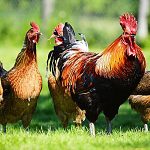
Everyone uses the word “flock” when referring to chickens. But what is a flock? And how many chickens make a flock? Definition of Flock According to Merriam-Webster, a flock is a group of animals (such as birds or sheep) assembled or herded together. The dictionary that came on my computer further refines the definition as […]
Continue Reading

All chickens have spur buds. Roosters are well known for their spur buds developing into full-blown spurs. But hen’s can grow spurs, too. While some roosters — notably certain strains of Cubalaya — maintain only rudimentary spurs, some hens develop long rooster-like spurs. As with roosters, the longer the spur, the older the hen. Which […]
Continue Reading
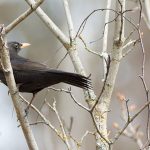
Chickens and other poultry are birds, right? So logically you’d think it wouldn’t be a problem for your flock to mingle with wild birds. But here are three reasons why chickens and wild birds shouldn’t mix. Fowl Mites The northern fowl mite (Ornithonyssus sylviarum) is the most serious external parasite of chickens. It is the […]
Continue Reading

Ayam Ketawa Hatching Eggs
FREE SHIPPING!
Only sold in 12 Pk
No Pick up orders
Coming soon
Continue Reading










